An Interview with Dora Chan, Lead Organizer of The Tech Walkout
January 13, 2022

On Tuesday, hundreds of Tech students walked out of school at the end of 5th period to protest Mayor Eric Adams’ adamance on in-person learning. This event led to national news coverage from The Washington Post, The New York Times, NY1, and The Gothamist. It received recognition from politicians, including New York State representative Yuh-Line Niou, and the New York City Department of Education. The walkout was organized by Tech students Dora Chan (‘22) and Rommy Sasson (‘23) and Stuyvesant students Rifah Saba (‘23), Cruz Warshaw (‘23), and Samantha Farrow (‘23). Their goal was to pressure the city government into offering an option for online learning as New York faces a rise in Omicron COVID-19 cases.
Following is a transcript of lead walkout organizer Dora Chan’s virtual Zoom interview on Wednesday, January 12, 2021 with The Survey. Responses were slightly edited, to account for spelling or grammatical errors. Ali’s questions and comments are in bold, while Chan’s responses are not.
What’s your name, grade, and Tech major?
My name is Dora Chan, and I’m a senior in the Finance major.
What are some extracurricular activities that you’re involved in at Tech?
The ones I’m most passionate about are the Outreach Volunteer Club and The National Honor Society. In Outreach, I serve as President and handle the club’s communications. In NHS, I’m the senior chair of the tours committee, overseeing all prospective students that want to come to Tech.
What do you want to pursue in college?
I’m planning on majoring in marketing and minoring in sociology.
Were you fully remote last year or opted in for hybrid education?
I was fully remote from the start of the year.
Did you enjoy remote learning?
No, I don’t think anyone did. I think it was tough because of how isolating it was. It was hard to make connections with your peers, your teachers on Zoom. Definitely, it was tough.
Who was the team behind the walkout? Did you plan it alone?
I can actually tell you this from the very beginning. On Saturday morning, when I first saw the original post, it only had 200 likes [on Instagram]. I liked the idea of it, and I decided to repost it on my story, knowing that my peers would also repost it. Before long, the walkout started gaining exposure across Brooklyn Tech students. But, I do want to talk more about the team. I reached out to the original walkout Instagram account [@nycstudentwalkout2022] because I knew they were students. They were like, “we’re three juniors from Stuy.” I responded, “oh, I’m from Brooklyn Tech, and I think I can help you guys out on the Tech side of operations.” Two hours after that conversation, we hopped on a Zoom call and introduced ourselves. We decided that I would handle the Tech walkout side of things.
Did the team reach out to other schools and assign representatives to organize individual walkouts as they did with you and Tech?
Sure, they are amazing for what they did. They could not find representatives from each school [for the walkout], but they did a really good job reposting the story. Brooklyn Tech’s exposure helped out as well. The walkout instagram account ended up getting a lot of exposure from other schools. And, [the other schools] began organizing walkouts themselves in smaller subsections. One member of our team handled the Twitter account, one handled Instagram stories, and the other handled DMs [direct messages].
You partially answered this, but what motivated you to help organize this walkout?
The surge of COVID cases is no joke. Kids are being forced to make the decision of safety versus education everyday. So I think the walkout was really important. And it worked. It showed the city, the entire nation even, that we need a change.
This goes along with the previous question, why was this walkout important?
The walkout is really important because it shows our unity. The walkout itself is symbolic, but it is also the reason why we garnered so much attention. I think the show of unity, I’m gonna use the word again, is really impressive to adults, which is why I think [the walkout] started picking up so much.
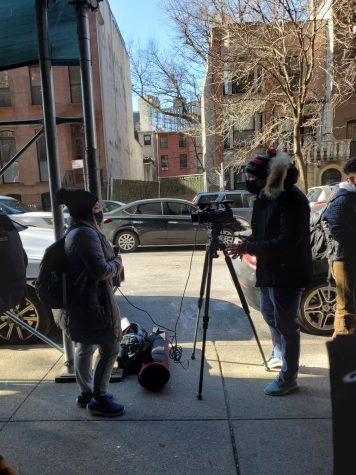
How did you organize it? What was your role specifically after you got assigned to Brooklyn Tech?
I had the honor of working with 34 executives on my Outreach board. I’ve been working with them for almost half a year. I knew they were going to back me up. At that time, the walkout had almost no traction. So, I went and told them about the goals, and it kind of helped push it to the forefront of the Brooklyn Tech community. They definitely sparked the chain reaction. When 34 people repost the same story, their peers will see it, then their peers will see it, and so on. The entire school ended up knowing about it.
So social media was the driving force?
Yes, absolutely.
What have been your experiences with student activism in the past? Walkouts? Protests? Policy work? Did you always participate in activism of this kind or is this your first time?
Not my first entry, but this will definitely be the biggest! Starting out in my freshman year, I had a particular passion about climate change. I was in the sustainability club in my sophomore year. In my junior year, I’m sure you know as well, so many current events were brought to light: sexual assault, #MeToo, police brutality, and all these other things that were really important. They were important in building my confidence for this event. These types of protests have worked before. Despite the skepticism at first, I knew that [the walkout] could go really well.
Based on your observations, approximately how many students walked out from Tech?
I’ve been telling every newspaper, 400.
Do you think the walkout was successful?
I think it was. I’m saying “walkout” as in the entire city. Brooklyn Tech was at the forefront. We put in those numbers. But, other schools, from every edge of New York, showed up. Even Kindergarteners walked out.
I heard before we began this interview that you were being contacted by the New York Times, and multiple national news outlets have already covered this walkout. How are you handling all the attention?
I’m going to respond from the perspective of the entire organizing team, the five of us. We’re just shocked, overwhelmed, but so busy that we don’t have the time to let it sink in. We went from 200 likes [on Instagram] to nationwide in like five days. Even as I’m saying this to you right now, I’m still comprehending how that came to be. But we are so grateful that it’s going so well!
Tech made a few headlines, trended on Twitter, and got people talking, but where do we go from here? What’s your next plan of action in this push for remote learning?
As I’m sure you know, the mayor has been following up. The chancellor also tweeted at us. We know that we have their attention. I’m disappointed, though, in their inaction. I’ll start with the chancellor. Yesterday, he tweeted at us that he would love to meet with student leaders. Obviously, we were like “oh perfect!” We commented under that thread [on Twitter], but we were skeptical. It took them like half a day before getting back to us. It definitely casted a shadow of doubt on [the Chancellor]. It definitely did not help the morning after that the mayor made a statement that the earliest we could go online was six months.
Let me just start by saying that I agree with the mayor on one thing regarding this problem. He said that he wanted to address this problem in the correct way. So that’s a step in the right direction. But then immediately after that, he said that it would take six months. It’s so logical that I didn’t even think I had to say it; the correct way is to act now. The pandemic waits for no one. It’s awfully coincidental that six months from now is the exact time of the [school] year’s end. It raises the question, “are you postponing this to the end of the school year, so you’ll never have to implement remote learning?” I’ll wrap up by saying that the City and the entire nation is coming together and telling [the mayor] that he needs to listen, and he hilariously ignores our statement and maintains that he cares what we think. Students, parents, everyone really have been talking, but he’s really not listening.
How can current students get involved and continue the push for online learning? How do we keep this candlelit?
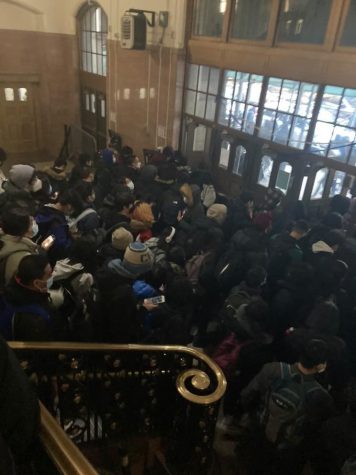
The solution is to put pressure on the city. The way to do that is through our “evidence compilation” project. To put it simply, it’s a project started by the walkout team that collects student statements regarding this problem and evidence of overcrowding and empty classrooms. On one end, there is extreme fear among students, which is why there are empty classrooms. They are just not coming [to school] anymore. On the opposite end, those who are in school, they are still experiencing overcrowding given the nature of NYC public schools. For Tech kids, the easiest and quickest way to help this cause is to contribute to this project. Send the walkout account pictures of empty classrooms and crowded hallways of students and teachers.
Were you surprised when Principal Newman agreed to the terms of the walkout?
I wouldn’t say I’m surprised. I know this is not the exact question you’re asking, but the moment I got that response back, I was hopping around my room. I was like “oh my god, we are getting there. Brooklyn Tech… we might be getting somewhere.” I’m just grateful to the school administration for their support. I’m hopeful that they are on our side in the nationwide discussion.
So as you might have seen, some people think that people only used this walkout as a way to cut class. What’s your response to that notion?
The critique that high school kids just want to cut class is under the umbrella of the assumption that kids don’t know what they’re doing. I think some people in the older generation are just not used to that action. Whenever people in power don’t do anything, we tend to demand change. We’re doing the same thing here. If I had a chance to talk directly with these adults, I would just say that you’re not living the reality of a New York City high school student right now, and thus you don’t have the credibility to grill us or speak for us.
What’s your message to Eric Adams and the DOE administration who are adamant on keeping schools in-person?
If I could just say one sentence, I would reiterate that we need public schools to go online now. To his statement about implementing remote learning in six months, when the very students you were elected to protect are begging you to open your eyes, it is time to react.
Mayor Adams routinely points out that there are struggles of online learning in regards to mental health, students who don’t have a quiet, private space to learn, and those students who use school for basic needs such as food through free lunch. What is your response to this argument?
It is true that remote learning highlights these concerns. I’m going to start with mental health, that’s a big one. A lot of people said that remote learning was isolating, hard, and difficult. I think that is completely true, you know it, I know it, everyone knows it. I wish, however, that the adults in power would think more currently. If kids have to make this sacrifice of their health to go to school, maybe that’s the reason why they’re not feeling so well mentally. Maybe it’s because they’re seeing their classmates and teachers drop like flies. I think that is most pressing.
As for the other points, I completely agree. The digital divide, lack of childcare, and access to lunch are all problems that POC communities face. But, I find it hilarious in the worst way possible that it’s Mr. Adams who is saying this. Because he is the very person that can solve these problems. Yes, these issues are highlighted by remote learning, but they are not resulting from remote learning. People in power are simply not doing anything. To say this more clearly, if they did care about underprivileged kids, then they would provide these resources with their budget, such as employing grab and go lunch again. These initiatives would alleviate some of the stress for underprivileged students. I think it’s a performative show that politicians are putting up today. I particularly do not like it when politicians bring up these concerns only when it benefits their agenda.
What I’m getting from you is that the argument surrounding the issues of remote learning is a systemic issue?
Yes.
Do you think we will eventually go back online?
I think so. I’m predicting it. I’m confident because I’m hopeful. I think that the dramatic stories that news channels are putting out, the supportive Twitter comments, and the responses to critics are making me extremely hopeful. If the city doesn’t do this now, they will just put themselves in a terrible situation in one or two weeks. It will happen. It’s just a matter of time.
Well, thank you so much for taking the time to do this interview. It was very insightful.

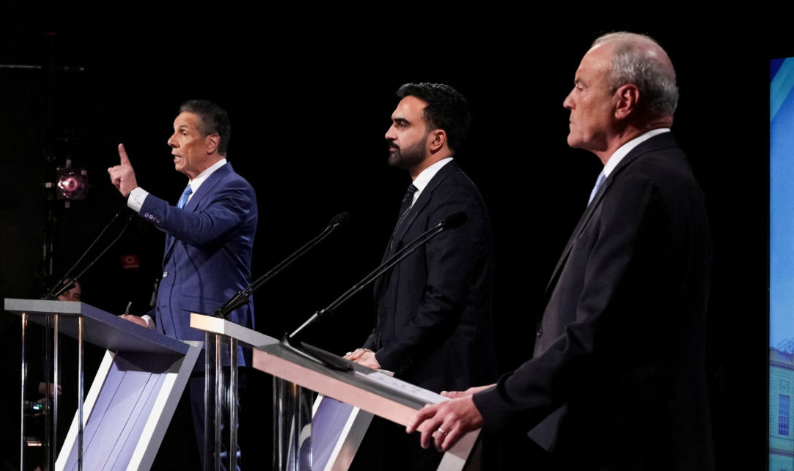
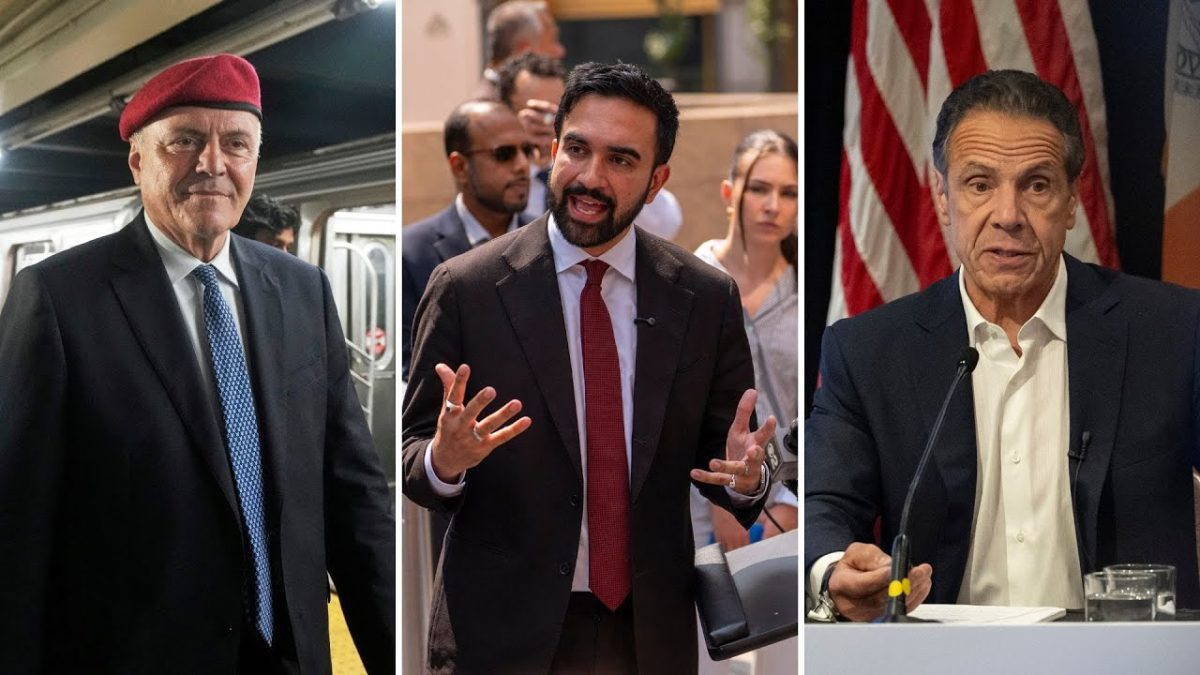
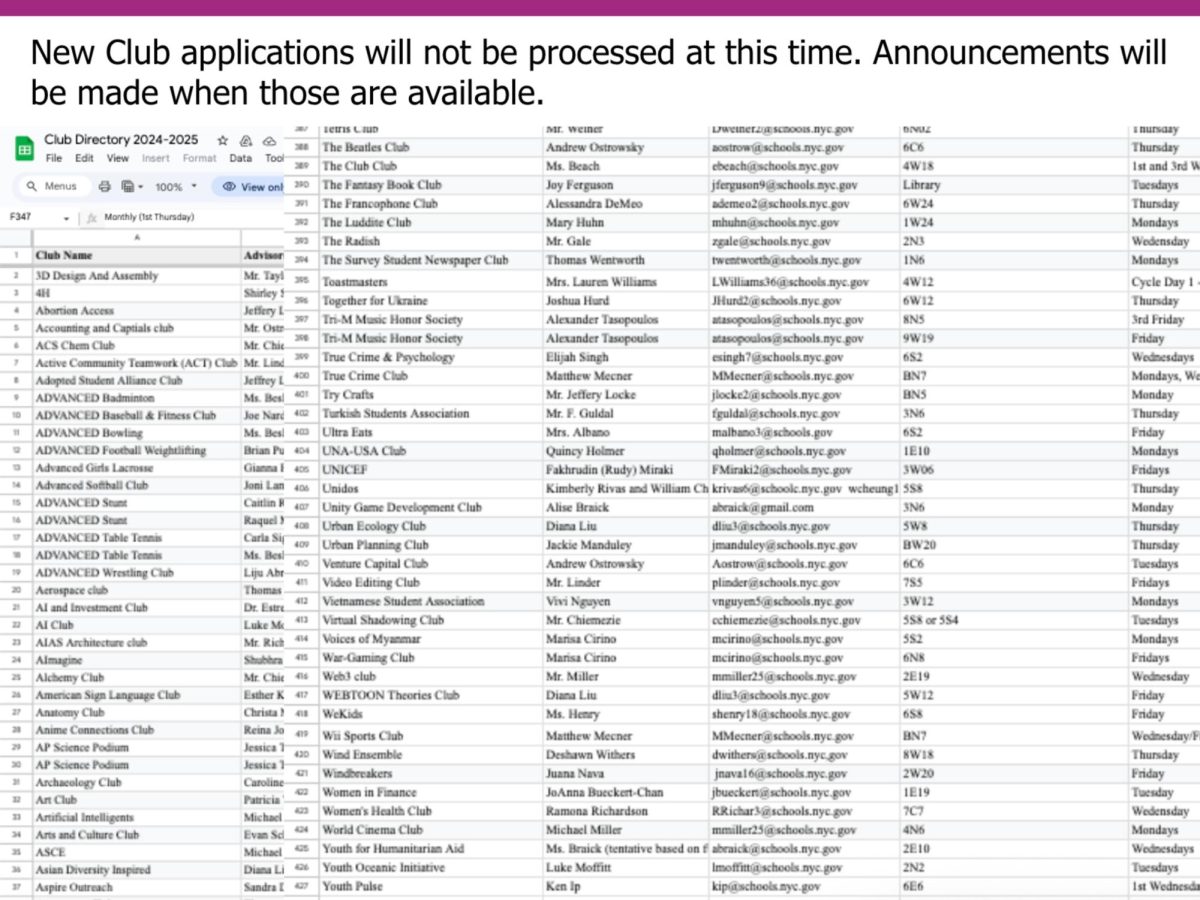
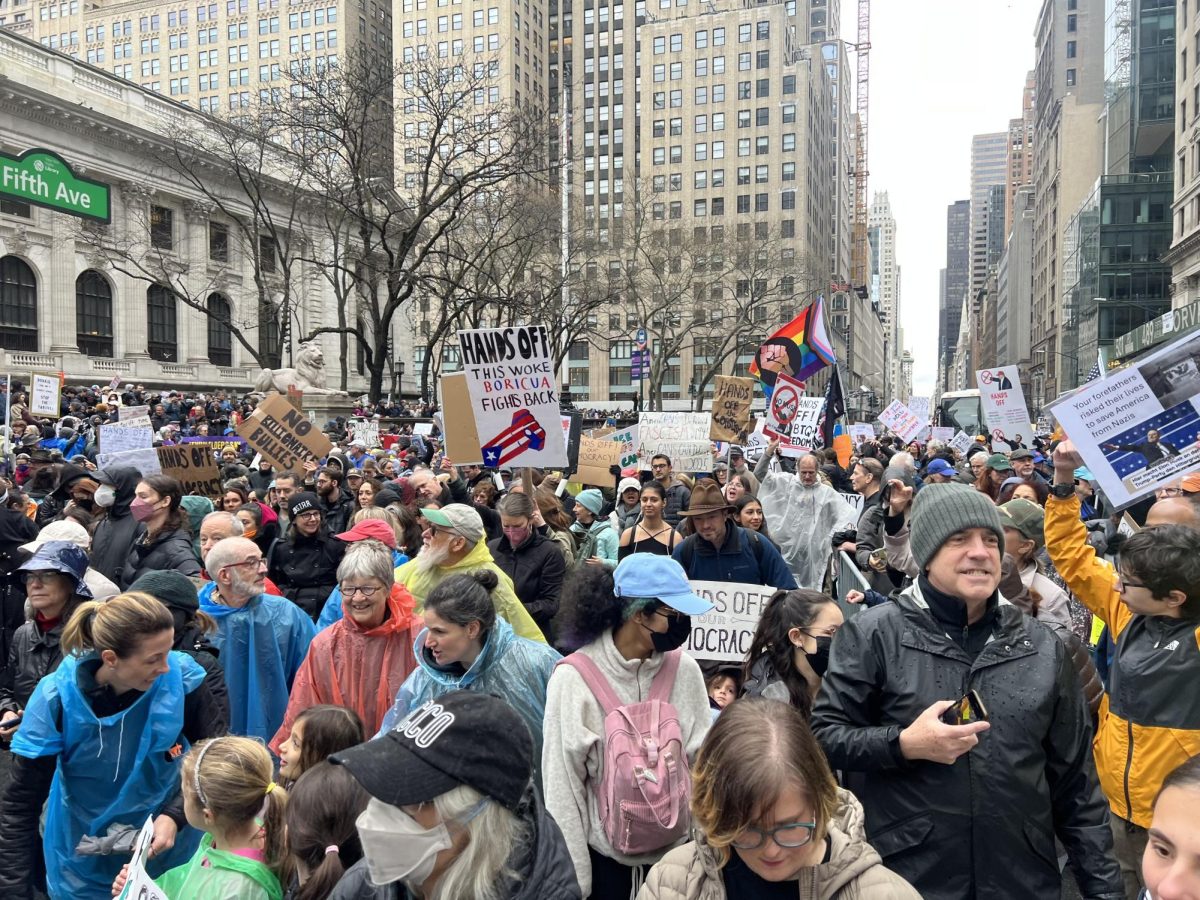
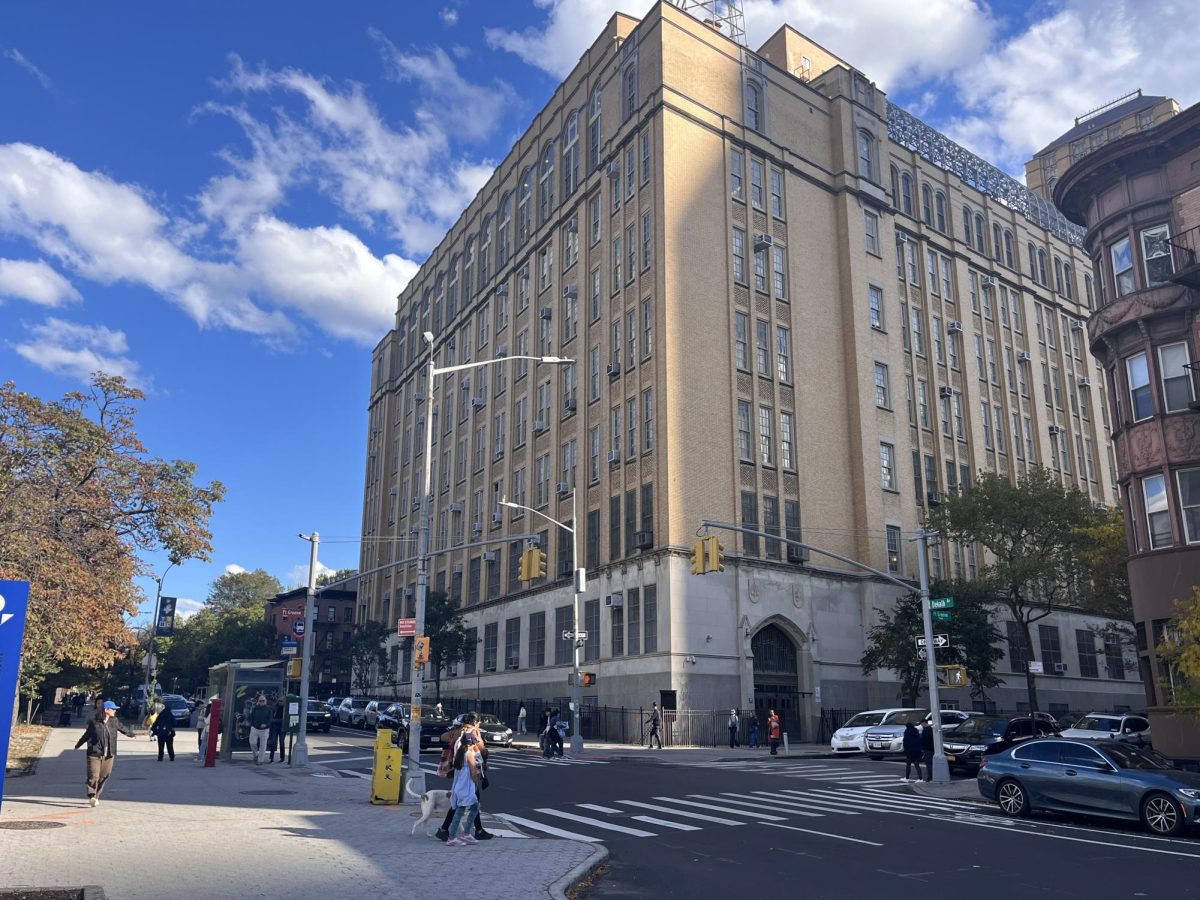
































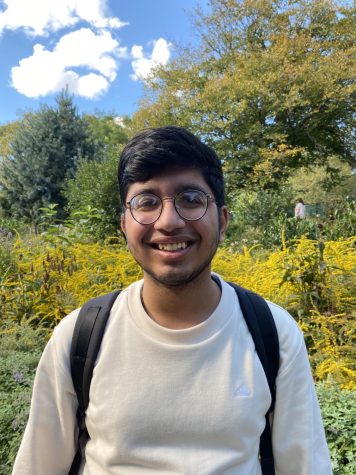
Michael Petrov • Feb 11, 2022 at 11:38 pm
Cool article, I appreciate the transcript and the insight it gives into the thought process of this walkout. I do, however, disagree with it and the goals, and I’m glad this walkout didn’t do much except for creating a bit of a citywide stir.
alexjjudd • Jan 14, 2022 at 12:38 pm
Are the organizers of the walkout advocating for a remote option or to close schools? On social media they seemed to advocate for a remote option, but this interview seems to advocate for a full closure. If a remote option is given, should students still have the option to continue enjoying the benefits of in-person learning if they choose to do so?